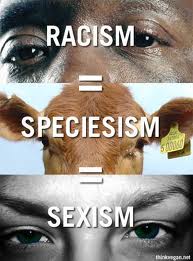 I recently came across a book review that included anthropocentrism in the list of isms about which influential voting blocs (readers of small-press volumes of poetry, in this case) apparently need their consciousness raised. The exact phrase was “environment-gutting anthropocentrism.” That’s funny, I thought saving the environment was all about saving, you know, humans. Is there any issue about which the liberal mind doesn’t contain two contradictory ideas?
I recently came across a book review that included anthropocentrism in the list of isms about which influential voting blocs (readers of small-press volumes of poetry, in this case) apparently need their consciousness raised. The exact phrase was “environment-gutting anthropocentrism.” That’s funny, I thought saving the environment was all about saving, you know, humans. Is there any issue about which the liberal mind doesn’t contain two contradictory ideas?
I didn’t give it much thought at the time. Isms are a regular feature in academic writing and, increasingly, poetry reviews. Besides, I didn’t think anthropocentrism is the kind of word that could go mainstream — too many syllables.
Then I saw that Ron Silliman (a well-regarded elder statesman in experimental poetry circles — if you’re into that sort of thing) was to give a reading followed by a talk on something called “Post-Anthropocene Poetics.” AnthropoCENE? That was a new one to me, so I looked it up. If you don’t want to read the whole fascinating history of the word, here’s the summary: Anthropocene is a proposed geological term for the period starting when humans began impacting the environment. It has not been officially adopted (yet), so for now I guess we can be thankful that geologists — unlike experimental poets — have some reservations about what such a term implies.
What’s more frightening, however, is what “post-anthropocene” implies and the assumption that such a period will occur (and what the hell does it have to do with poetics?). While waiting for the video of Silliman’s reading/talk to pop up online somewhere, I tried to find out if this post-anthropocene poetics thing was, actually, a thing. All I could find was this mind-numbingly torturous article. I will not quote any of the piece here out of respect for you and your sanity. It is the worst kind of academic jargon-juggling. If you’re the masochistic sort, go ahead and click the link, but consider yourself warned. I tried reading it and could not decipher a single paragraph, and it certainly didn’t fire me up for Silliman’s talk.
Luckily, the talk made more sense, by which I mean it was nonsense I could understand. After reading some of his poetry (more torture, if you care), Silliman went through a brief litany of evils humanity has inflicted on itself and the planet and shared his belief that some sort of fallout or catastrophe was right around the corner. He never did detail what any kind of poetics would look like after that point, a feature of his talk for which I was actually grateful. I mean really — poets considering how they will write after the end of Moleskine notebooks and air-conditioning? That may have been too embarrassing to watch.
So, what does poetics have to do with politics, and why did I drag you through these seeming non-events occurring in a small corner of the literary subculture? Because…
This is how it starts.
It’s not just university political science courses where progressive ideas are incubated, and it’s not just Hollywood where they enter the culture. Anthropocentrism has, of course, already crept into the culture through the environmental movement, in substance if not in name. But one day you’ll turn on the news and it will be a thing. And as we know with all the other progressive isms, once it’s a thing it will be very hard to stop.